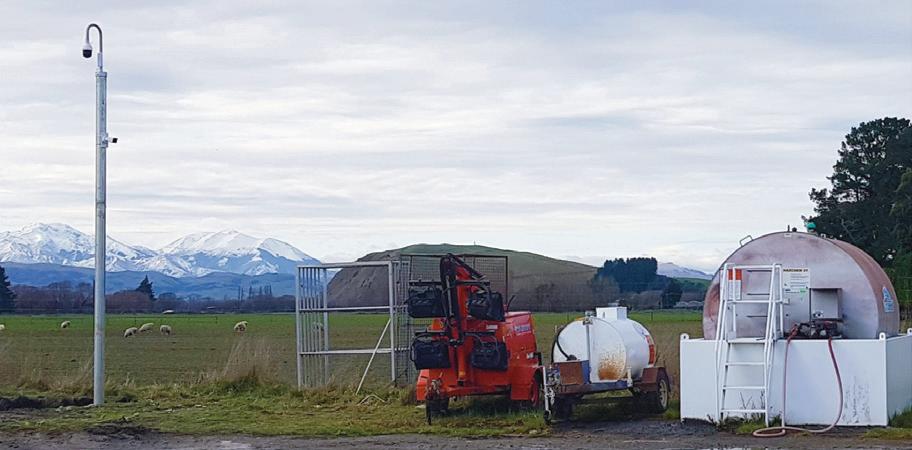
3 minute read
Ruralco Energy takes headache out of energy options
by Ruralco
The options for farmers wanting to re-assess their business’s energy use, and even its energy sources for the new farming year have never been greater as technology and systems advance rapidly.
WORDS BY RICHARD RENNIE, IMAGES BY ANNIE STUDHOLME.
Advertisement
The Ruralco Energy team have doubled down on their efforts to help Members navigate the obstacles to keep farm energy costs down and choose smarter options by offering members choice on their suppliers and energy packages. Ruralco Energy Sales Manager Tracey Gordon and Key Account Manager Glenn McWhinnie collectively bring over 30 years of experience to the co-operative’s energy business, providing shareholders with an invaluable resource, offering unbiased informed advice on getting the best energy options possible. “The energy sources farmers can consider has advanced rapidly in the past few years, particularly with the options solar can bring to larger farm businesses. For many members, it
IMAGE: Ruralco Energy Sales Manager Tracey Gordon and Key Account Manager Glenn McWhinnie collectively bring over 30 years of experience to the co-operative’s energy business
can be a case of stepping back and considering not only their energy use, but also their energy sources to get the best solution,” says Tracey. Ruralco’s partnership with Canterbury based solar providers is an invaluable resource to tap into the growing solar energy sector, with larger farms, in particular, having the opportunity to supply their own energy needs. Such partnerships are only undertaken after careful scrutiny of a company’s integrity and quality, giving Ruralco Member’s peace of mind without having to undertake the due diligence themselves. Other emerging opportunities include the possibility of gas supply to dairy farms in bottled form, providing a highly efficient, cost-effective option to traditional electrical heating systems. Some networks have seen huge increases in network charges with drops in electricity volumes, meaning farm electricity capacity and analysis is an area of demand for larger users. Businesses with “spikey” usage patterns can incur higher network charges regardless of the actual consumption on farm. “For anyone who may be a low, intermittent user of a connection, possibly with a backup irrigation pump for example, these are increases they can’t avoid. It can really change the economics of some connections and require alternatives, such as solar and gas, to be considered,” says Tracey. Increasingly the Ruralco team are not just looking to get the lowest price for members, they are taking a more holistic “all energy” approach to the farm business’s energy needs. Advances in energy profiling means Tracey and Glenn can drill down into a farm businesses particular usage pattern, often quite different from a conventional processing or manufacturing business, with pronounced seasonal peaks and distinct low points which correlate with weather events and particular seasons. The New Zealand electricity market has long been rightly viewed as a complicated one where billing and contracts can prove hard to understand. The Ruralco Energy team has worked hard with their energy partners to make accounts simpler and easier to follow for Ruralco Members. “Our bill checking service is becoming popular with members, every month doing an assessment of charges to ensure there are no surprises there, and the pricing structure is what it’s supposed to be,” says Tracey. Determining the type of contract for the sharply seasonal nature of irrigation energy is a complex one, with the wrong choice likely to add thousands to an operation’s cost centre. With costs on the rise across all irrigation operations including dairying and arable, having some expert, unbiased advice to call upon can literally save thousands once that contract is locked in. Tracey and Glenn’s extensive network of contacts within the sector means they have good insights into upcoming issues that are likely to affect members’ contracts and pricing, whether that is impending hydro lake shortfalls, or changes in legislation around electricity contracts. “The New Zealand electricity market is not the simplest, and we want to ensure our members have a lot of those headaches removed, with us doing the leg work for them so they can focus on doing what they do best, being good operators,” says Tracey.











